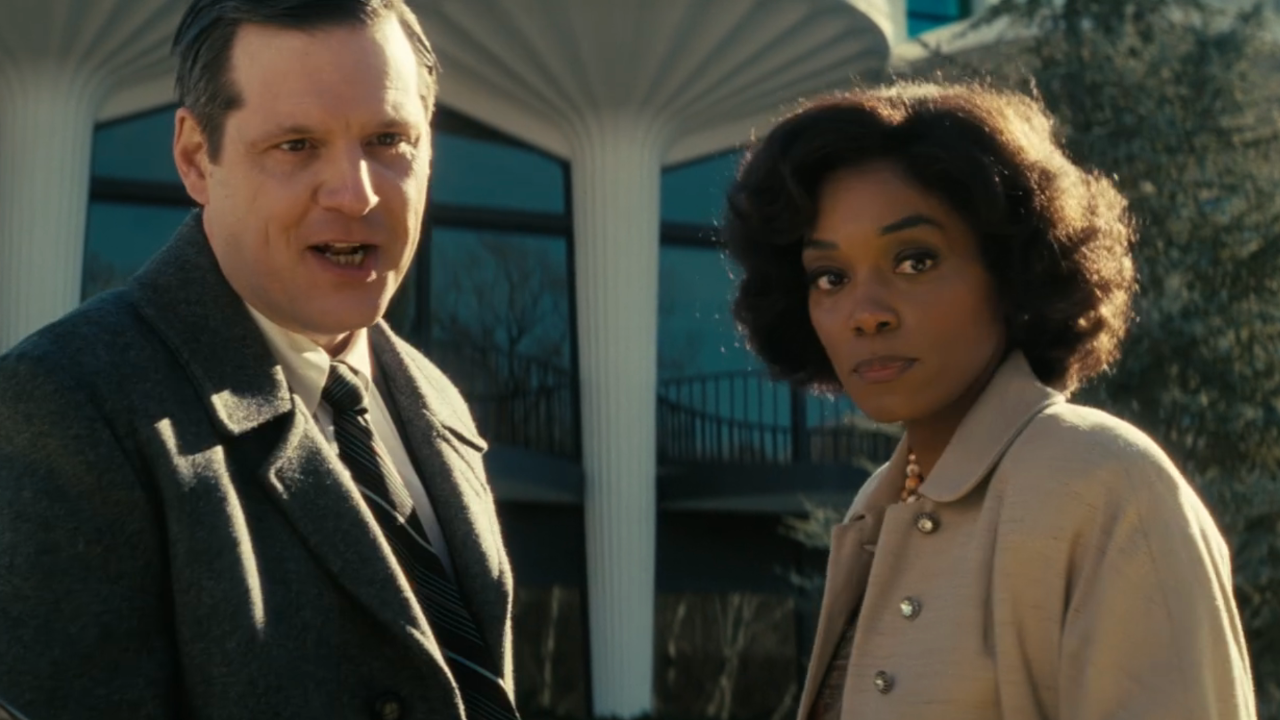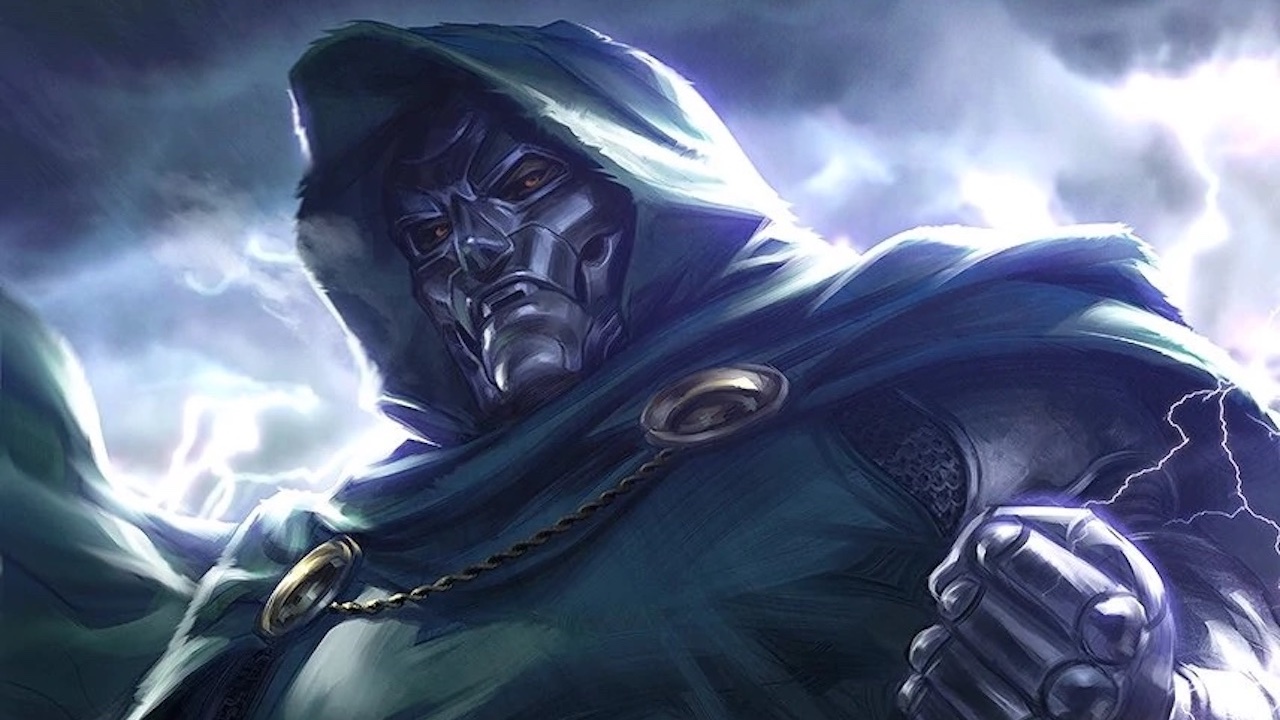I’m Still Really Confused About One Of Fallout’s Big Finale Reveals
Let's talk about Barb and Bud's big plan.

The Season One finale of Amazon's Fallout finally gave us answers to some lingering questions, as well as a whole lot more info about shady mega-corporation Vault-Tec. On the whole, it was a pretty satisfying final episode for one of the most intriguing new shows we’ve gotten in awhile, but days later, I can’t stop thinking about some of the things Cooper Howard overheard his wife Barb say, what the implications of them are and whether they make sense from a business perspective.
Spoiler Warning: I’m going to talk freely about the final episode of Season 1 of Fallout throughout this article. I honestly don’t have a ton of sympathy for you if you clicked on an article with this headline and are shocked to get spoilers, but in the interest of full transparency, I’m not gonna hold back. So, get caught up or save your emails.
Now, the reveal in question I want to talk about happens midway through the finale. Howard is inside Vault-Tec, listening to his wife and waiting to meet the man we soon discover is Lucy’s father Hank MacLean, when Bud Askins admits to rival CEOs that Vault-Tec’s sales are down with the recent rumors of peace talks. He then says the vaults have enough resources to last hundreds of years, and they’ll win the great game of capitalism because time is the apex predator.
Barb asks the other CEOs to invest in their own vaults they can run however they want. The other bigwigs admit it’s intriguing because there’s a lot of earning potential in the end of the world but are concerned about how hypothetical it all is. She says Vault-Tec can guarantee results by dropping the bomb themselves, thus creating a “true monopoly” when there’s no one left to fight.
So, to summarize, this conversation seems to be implying that Vault-Tec needs money/ wants to increase profits; so, they’re offering other companies the opportunity to invest in their vaults and will guarantee that investment by dropping the bomb themselves, thus ensuring there’s no competition down the line. I suspect some viewers just blandly accepted this from a big corporations are bad surface level standpoint, but if you dig deeper into what’s going on, it leads to a lot of confusing questions about how any of this actually works.
I don’t work for Vault-Tec, but If I were to put my seedy rich guy tycoon hat on, I would think the most direct path for Vault-Tec making a lot of money would be for there to be a constant threat of atomic annihilation but never actually an atomic annihilation. Let me explain. The goal of most businesses is to bring in new revenue. We don’t know what exactly Vault-Tec does outside of making vaults, but for purely that arm of the business, the clearest walk to revenue is people buying spaces in vaults.
That means you want people convinced the world is going to end and desperate to secure their spots, but it probably also means you don’t actually want the bombs to drop because you can’t get revenue from dead people and while there might be an initial run amongst survivors on paying for whatever spots are available, you can’t effectively build new vaults if the Earth is an uninhabitable wasteland devoid of the resources you need.
Your Daily Blend of Entertainment News
There’s also the question of how you make money off of people who are inside the vaults. If you’re locked in a vault and spending your days planting crops in order to sustain a self-contained community, you’re probably not generating the type of revenue you could pay to a company. So, for that company to profit, it would either need to take some of the fruits of your labor (i.e. sell some of the crops) or it would need to figure out another way to monetize your presence (like mining for data). I suppose you could argue that maybe Vault-Tec made so much money from the initial purchases of vaults that they’re not worried about generating more money, but that’s not really how businesses work.
So, if we think Vault-Tec wants to make as much money as possible for the longest period of time possible, that brings up some intriguing and off the wall possibilities. Maybe only a small portion of The United States, like the area around Los Angeles, was actually destroyed by the bombs. That would leave Vault-Tec to ability to sell the spaces in the remaining vaults to the highest bidders. They could even build new vaults and use the catastrophe that happened to Los Angeles as maximum incentive. Maybe all the key players in Vault-Tec froze themselves using the same tech that’s in Vault 31 with a goal of reanimating in a future to dominate the world and make the most money possible when they’re the only game in town and could control all available resources.
Maybe there’s a much bigger and more robust society within some of the other vaults that’s generating resources and revenue, and these other vaults were just to distract from whatever the real plan going on there is. Maybe Vault-Tec is controlling all of the trade in the wasteland and making a percentage of the profits. Maybe Vault-Tec knew the bombs were going to drop and they preemptively did it in order to make sure they didn't hit any of the vaults directly.
I’m not entirely sure what’s happening, but what I do know is what Cooper overheard during his wife’s meeting doesn’t make sense from a purely business standpoint. It’s possible it’s just bad superficial writing that points the finger at corporate America without an interest in diving deeper. Or, more likely, it’s a few snippets of a much larger plan we’re gonna hear way more about during Fallout's next season, which is officially a go. I suspect it’s the latter, and I cannot freaking wait to get some answers because right now, I’m so confused.
Mack Rawden is the Editor-In-Chief of CinemaBlend. He first started working at the publication as a writer back in 2007 and has held various jobs at the site in the time since including Managing Editor, Pop Culture Editor and Staff Writer. He now splits his time between working on CinemaBlend’s user experience, helping to plan the site’s editorial direction and writing passionate articles about niche entertainment topics he’s into. He graduated from Indiana University with a degree in English (go Hoosiers!) and has been interviewed and quoted in a variety of publications including Digiday. Enthusiastic about Clue, case-of-the-week mysteries, a great wrestling promo and cookies at Disney World. Less enthusiastic about the pricing structure of cable, loud noises and Tuesdays.
